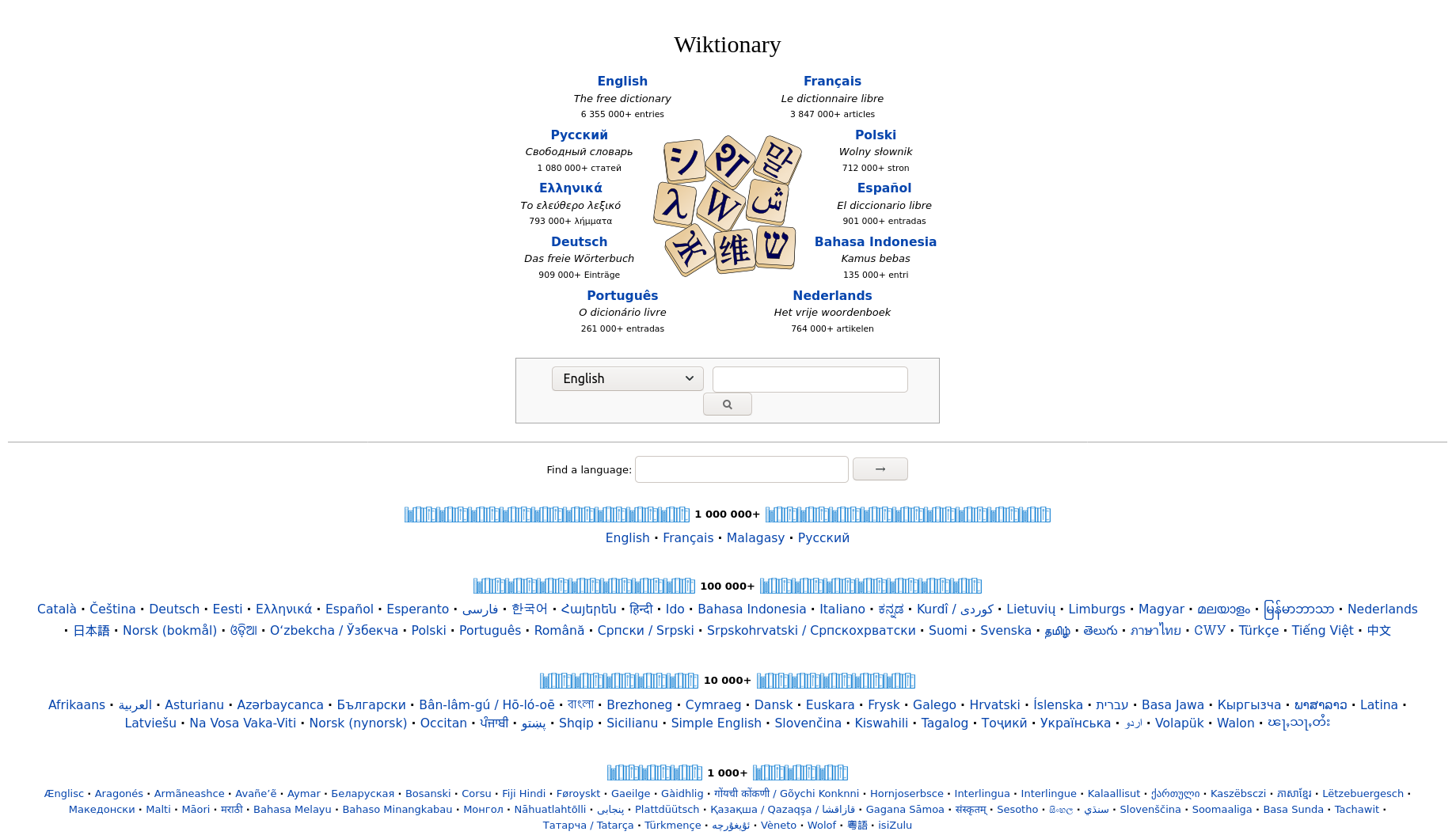kategori:


Wiktionary is a multilingual, web-based project to create a free content dictionary of terms (including words, phrases, proverbs, etc.) in all natural languages and in a number of artificial languages. These entries may contain definitions, pronunciation guides, inflections, usage examples, related terms, and images for illustrations, among other features. It is collaboratively edited via a wiki. Its name is a portmanteau of the words wiki and dictionary. It is available in 171 languages and in Simple English. Like its sister project Wikipedia, Wiktionary is run by the Wikimedia Foundation, and is written collaboratively by volunteers, dubbed “Wiktionarians”. Its wiki software, MediaWiki, allows almost anyone with access to the website to create and edit entries. Because Wiktionary is not limited by print space considerations, most of Wiktionary’s language editions provide definitions and translations of words from many languages, and some editions offer additional informations typically found in thesauri. Wiktionary data is frequently used in various natural language processing tasks.
If you search for something in the wiktionary (like https://en.wiktionary.org/wiki/water), privacy badger will say there are no trackers and uBlock Origin will say there are no ads. Since you also don’t have to pay money or trade anything else, this dictionary is trade-free. Therefore I give 5/5 blocksDirektori ini ialah koleksi barangan & perkhidmatan bebas perdagangan yang wujud di dunia hari ini. Barangan atau perkhidmatan dianggap sebagai bebas perdagangan jika ia tidak meminta apa-apa (tiada wang, tiada data, tiada perhatian dll.). Ini adalah bentuk percuma dan paling jujur. Jika anda mengetahui lebih banyak barangan & perkhidmatan bebas perdagangan, anda boleh menyerahkannyaShow more